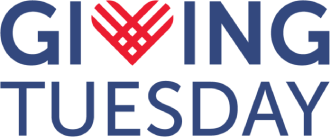One of GivingTuesdays’s core beliefs is that generosity plays a vital role in depolarization efforts by creating spaces where people can move beyond certain forms of disagreement to forge meaningful local connections. When individuals work together on shared community projects – whether organizing neighborhood cleanups, running food drives, or maintaining public spaces – they build relationships that may help transcend political and ideological divides. This practical collaboration allows people to see each other’s fundamental humanity and discover common values, even while maintaining different views on broader issues.
In this special edition of our GivingPulse report, we contribute new data-driven insights on potential relationships between generosity-related action and political polarization, drawing on data from our GivingPulse dataset in the U.S.
Key Findings
1. We have created a new measure for understanding generosity and polarization: Civic Intent
We used these generosity behaviors and attitudes in our GivingPulse surveys to measure prosociality. Our approach differs from other prosocial scales because it is defined by specific recent actions people took to improve their community/world instead of general tendencies. It combines a person’s good intentions with their goodwill towards others. We call this “civic intent,” and demonstrate how this quantity helps us better understand what unites or divides us politically, or within communities, and what encourages people to help others.
Based on our research, civic intent means having good intentions around helping those most in need, in order to strengthen community, doing some good regularly, and therefore recently, and generally trusting people.
2. What kinds of people have higher civic intent?
- Those who are asked to participate:
- People who see reminders and get solicited to contribute to causes and communities have higher civic intent, and are more likely to engage in generosity activities in their communities.
- Those who are aware of world and community events, and of opportunities to give:
- People who are more aware of what’s going on in the world and in their community have higher civic intent.
- As an example of an awareness-building exercise, those who are aware of and inspired by GivingTuesday show higher civic intent, meaning they are more likely to both participate in generous activities, and be willing to help others from different political and ideological perspectives.
- Demographics do not seem to matter as much:
- Income, sex, rural/urban, and employment have little to no effect.
- High religiosity or having children matters somewhat, but affects civic intent less than it does levels of generosity.
3. How does polarization affect people’s willingness to support others?
- 80% of people say they are willing to help others, even those who beliefs, politics, or lifestyle they don’t agree with.
- 75% of people believe they’re working to make their community a better, more civil place.
- 57% of people strive to help those most in need, even if that means helping those from their own community less.
- 9 out of 10 people have performed a random act of kindness for someone before.
- People who trust others are more likely to hold depolarizing views, enjoy enjoying giving to nonprofits, and feel everyone has a duty to help those in need.
4. Is this year’s political season affecting different groups’ willingness to be generous?
- People with different political preferences are not meaningfully different in terms of generous behaviors or attitudes, as measured by civic intent.
- In Q3, we found that people at all points along the political spectrum are giving money to political causes and campaigns. This appears to be a shift from Pew Research’s finding in 2014 that the far-left and far-right were more likely to give politically than moderates.
- 57% of people who report giving to political campaigns also supported two or more organizations, compared to just 28% of the rest of the population.
- Recently published evidence¹ indicates that exposure to highly polarizing messages may actually drive more giving to nonpartisan causes.
¹One explanation provided by others is that divisive political advertising that targets a cause aligned with one particular ideology encourages non-ideological giving. See https://www.tandfonline.com/doi/pdf/10.1080/10495142.2024.2360192



